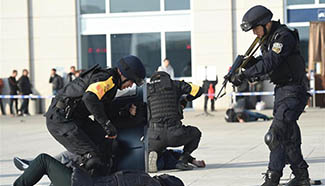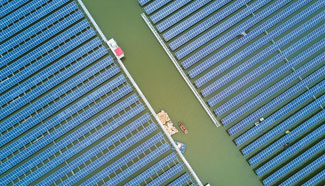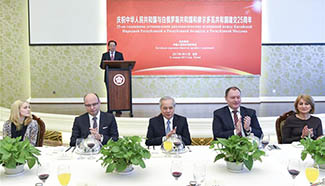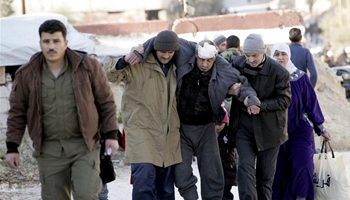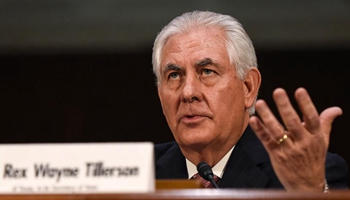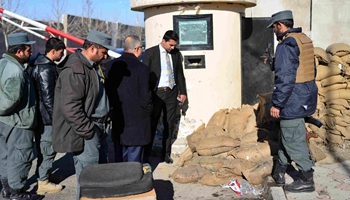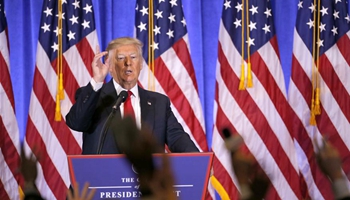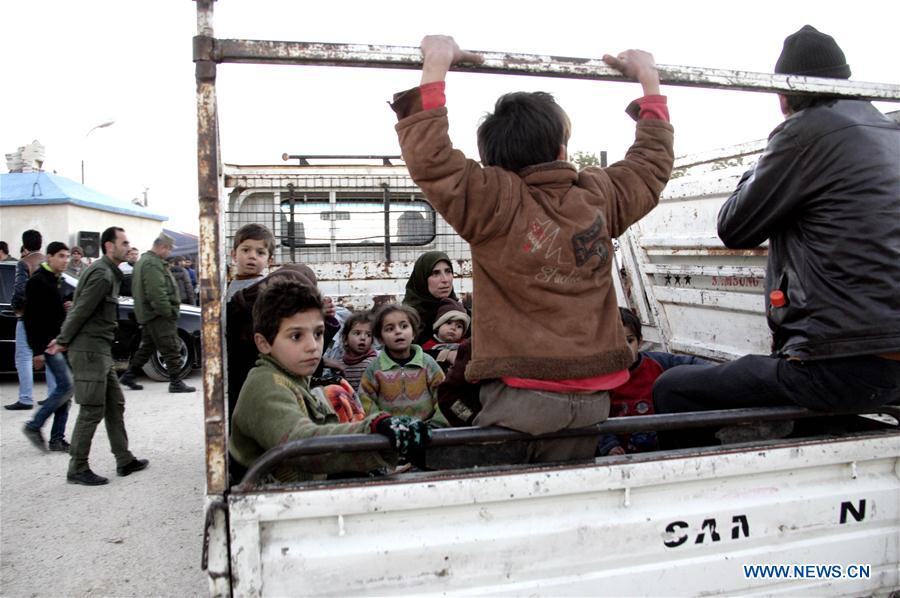 ?
?Syrians evacuate Barada Valley, northwest of Damascus, capital of Syria, on Jan. 11, 2017. Around 500 people, including 60 rebels, got cleared of criminal charges after surrendering to the Syrian army in the water-rich Barada Valley northwest of the capital Damascus, as part of a deal reached Wednesday between the army and the rebels in that strategic location, state news agency SANA reported. (Xinhua/Ammar Safarjalani)
DAMASCUS, Jan. 11 (Xinhua) -- Around 500 people, including 60 rebels, got cleared of criminal charges after surrendering to the Syrian army in the water-rich Barada Valley northwest of the capital Damascus, as part of a deal reached Wednesday between the army and the rebels in that strategic location, state news agency SANA reported.
Army deserters and dodgers were among those who turned in to the Syrian army in Barada, as the Syrian government promised amnesty for all those who leave rebel-held areas toward the government-controlled ones.
The number will surely increase in the next few hours.
The agreement in Barada came to empty that area of rebels, part of which will surrender to the army while the rest will be granted safe exits out of the area toward the northwestern province of Idlib, a main stronghold for the rebels.
Quoting officials supervising the file of Barada Valley, SANA said the area will soon be free of rebels, as a prelude for the entry of maintenance workers, who will start fixing the Ain Fijeh springs, the main water source feeding Damascus with drinking water.
Earlier in the day, SANA said the government concluded a "preliminary agreement" with the leaders of the rebel groups in Barada Valley, which includes reconciliation with some rebel groups, and the evacuation of others out of the area to Idlib, the destination of all the rebels who evacuate positions across Syria.
The rebels would have to hand over their heavy weaponry to the Syrian army, which will enter the area to clear it from mines and explosive devices.
The deal also includes allowing the government maintenance workers to enter Barada area to fix the Ain Fijeh springs, as the water has been cut off of Damascus since Dec. 23.
Previous attempts to reach a truce and understanding between the rebels and the government in Barada had failed, which led to a wide-scale military offensive by the Syrian army backed by the Lebanese Shiite Hezbollah group against the area, with the rebels responding by severing the water from Damascus.
Barada wasn't considered by the government to be part of the a Turkish-Russian sponsored ceasefire that went into force on Dec. 30, as the area is largely controlled by the al-Qaida-linked Nusra Front, which is designated as a terrorist group, and thus excluded from any settlement in Syria.
However, the Nusra fighters there have cut off the water from Damascus since Dec. 22, causing a massive water outage, amid recent reports that water poisoning cases started to surface as people have resorted to unclean water.




